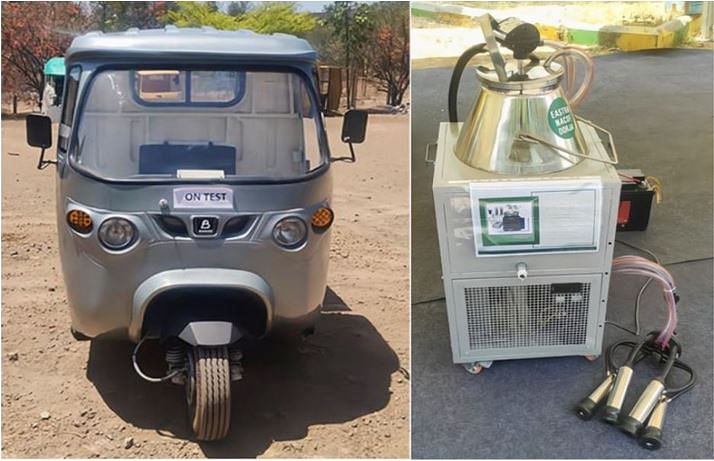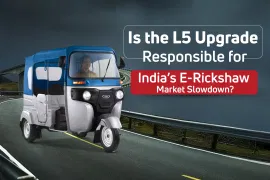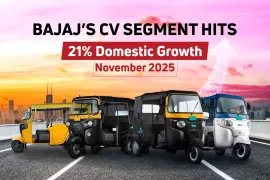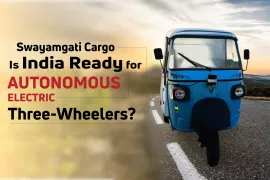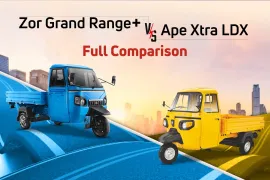NACOF Ooorja, a prominent name in Renewable Energy supported by NACOF, a multi-state Cooperative Society under the Ministry of Agriculture have developed a Special Purpose Vehicle (SPV) named E Astra. The new SPV will help sustainable farming practices and increase agricultural profitability in India.
E Astra NACOF Ooorja will act as NACOF Oorja’s agricultural mobility arm. The new unit will provide farmers with battery-operated equipment and vehicles built for their needs. The new vehicles will include specialized agricultural equipment like the E-Weeder, E-Reaper, E-Brush cutter, and the E-Cargo multi-utility 3-wheeler. There is also a unique feature in the new SPV which is a 20-litre Milking Cum Chiller unit designed for sustainable dairy farming.
NACOF Ooorja E Astra
There is also a new Advanced Technology center established by E Astra. The new center is dedicated to develop a Vehicle Control Unit (VCU) that manages all functions of an Electric Vehicle (EV) based on Electric Vehicle Range Extender technology.
The new SPV is developed domestically using indigenous technologies. This makes the new EV align with the Make in India initiative. NACOF Oorja is making efforts into the agricultural sector. The company made a new collaboration with a Nashik-based electric mobility startup focused on improving rural and agricultural mobility in the country.
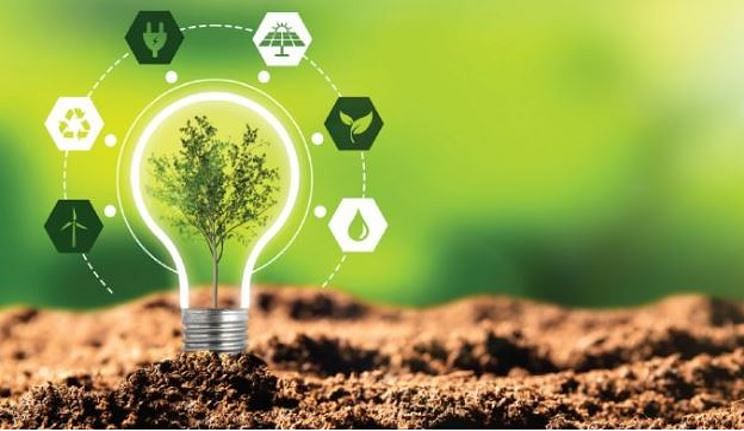
Sustainable farming advancement in India
India has a lot of agricultural land and the farmers depend on agriculture for their livelihood. In olden times agriculture practices were done manually. With the advent of new technology, there has been many futuristic vehicles like drones. Around 54.6% of the total workforce engaged in agricultural and allied sector activities. This sector is of great importance as it contributes a substantial 17.8% to the country's gross value added (GVA). In the fiscal year 2021-22, India achieved a milestone by recording a total of $50.2 billion in agricultural exports. This marks a significant 20% increase from the previous year's figure of $41.3 billion. As per IBEF report (India Brand Equity Foundation), projections indicate that the Indian agricultural sector is poised for further growth, with an expected expansion of 3.5% in the fiscal year 2023.
Today, agriculture stands at the intersection of three paramount challenges in the 21st century: ensuring food and nutrition security, addressing climate change through adaptation and mitigation, and promoting the sustainable utilisation of vital resources like water, energy, and land.
Also Read: Hyundai begins supplies of hydrogen fuel cell trucks in North America
The shift from traditional to technology-driven sustainable farming practices marks a significant stride toward ensuring agriculture's long-term viability while reducing its environmental impact. By embracing innovation, harnessing data, and prioritising ecological balance, farmers and food system stakeholders are paving the way for a more sustainable future. Successful agri-platforms are already streamlining access to a range of critical services for farmers, enhancing efficiency in the agricultural supply chain.
For decades, India's farms have been the backbone of sustenance, not only for the nation but also for the global community. With the integration of digital technologies, there lies a profound potential to elevate production at every juncture, from top-tier agriculture inputs to the delivery of world-class agriculture outputs. This has the power to foster sustainable growth for Indian farmers, bolster economic prosperity in rural areas, and catalyse a flourishing ecosystem that reverberates positively throughout the entire economy.
Web Stories
Latest Three Wheelers News
Categories
91trucks is a rapidly growing digital platform that offers the latest updates and comprehensive information about the commercial vehicle industry.
